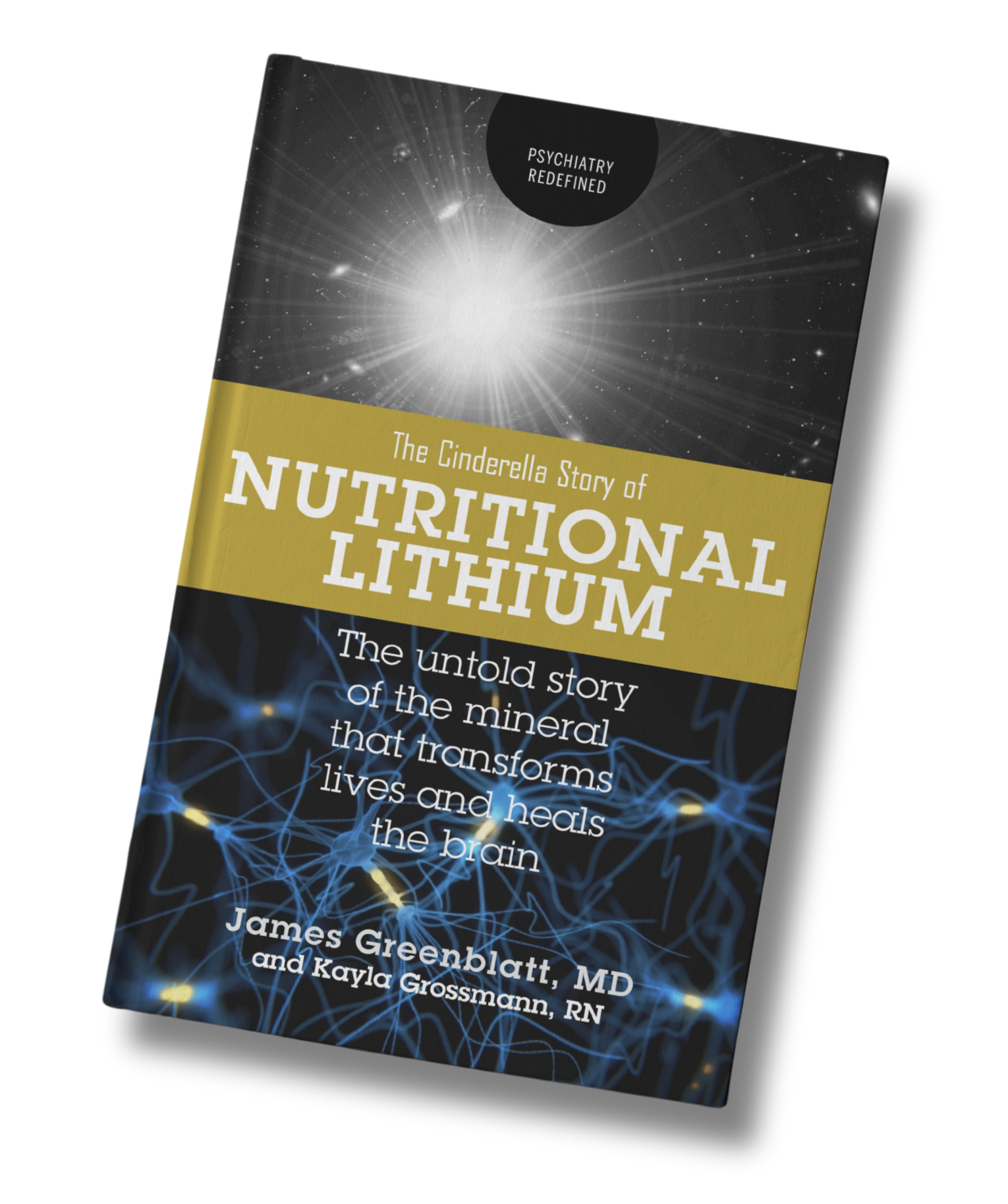Anxiety rates are climbing worldwide (Wang et al., 2025). As demand grows for safer, integrative solutions, research is shining a light on an overlooked trace mineral: low-dose lithium.
Naturally present in water, leafy greens, legumes, and root vegetables, lithium—notably in the form of lithium orotate—can modulate the nervous system, reduce stress-related inflammation, and enhance brain resilience, having strong implications for anxiety.
Research Highlights: Low-Dose Lithium for Anxiety
- Clinical evidence. In a six-week open-label trial, patients with bipolar depression taking low-dose lithium experienced significant reductions in anxiety, with over half reaching full remission of symptoms (Jones et al., 2022).
- Genetic insights. Individuals with stress-sensitivity genes, such as the CACNA1C allele, appear to benefit even more from lithium’s anxiety-reducing effects (Dickerson & Reed, 2024).
- Population studies. Communities with higher natural lithium levels in drinking water consistently report lower rates of suicide, depression, and anxiety (Szklarska & Rzymski, 2019).
- Real-world use. Surveys of over-the-counter lithium orotate show consistent improvements in mood and anxiety at low daily doses (around 10 mg elemental lithium) (Strawbridge et al., 2025).
- Alcohol & anxiety. In individuals with alcohol dependence—where anxiety often fuels relapse—low-dose lithium orotate supported long-term sobriety and improved both mood and anxiety (Sartori, 1986).
- Neuroprotection. A landmark Nature study reported that people with mild cognitive impairment and Alzheimer’s disease had markedly lower lithium levels in the brain. Lithium helps block tau phosphorylation, amyloid-β42 accumulation, and oxidative stress, reinforcing neural integrity and protecting against anxiety vulnerability (Aron et al., 2025).
Mechanisms of Action: How Lithium Supports Anxiety
Lithium’s ability to reduce anxiety stems from its impact on multiple brain and body functions.
Brain Health & Resilience
Lithium upregulates, or boosts neurotrophic factors— including brain-derived neurotrophic factor (BDNF) and BCL-2—pomoting synaptic plasticity, neuronal survival, and stronger connectivity in anxiety-related circuits (De Vasconcellos et al., 2006); Vo et al., 2015; Aron et al., 2025). By protecting neurons and reinforcing brain pathways, lithium builds long-term resilience against stress and anxiety
Neurotransmitter Balance
Lithium enhances serotonin and GABA—key calming neurotransmitters—while balancing excitatory glutamate and dopamine (Rijal et al., 2021). This re-centers the brain toward an inhibitory tone, easing hyperarousal and mood instability.
It also works with vitamin B12 and folate to recycle tetrahydrobiopterin (BH4), essential for making serotonin, dopamine, and melatonin. Without adequate BH4, neurotransmitter production slows, fueling anxiety, mood shifts, and sleep issues. Lithium further modulates monoamine oxidase (MAO) and supports methylation pathways, ensuring neurotransmitter signaling remains smooth and efficient (Haj-Mirzaian & Haj-Mirzaian, 2016; Szklarska & Rzymski, 2019).
Stress & Neuroimmune Regulation
Chronic stress overstimulates the HPA axis and immune system, creating a cycle of inflammation, neuronal excitability, and anxiety. Lithium disrupts this feedback loop by calming HPA activity, lowering inflammatory cytokines, and reducing oxidative stress (Rijal et al., 2021); (Haj-Mirzaian et al., 2016); (Won & Kim, 2020).
Circadian Rhythm & Signaling Balance
Lithium inhibits glycogen synthase kinase-3β (GSK-3β), a master enzyme influencing more than 40 proteins involved in mood and signaling. Through this action, lithium helps regulate circadian clock genes, which are integral for sleep quality, emotional balance, and stress resilience (Hamstra et al., 2023). Circadian rhythm and adequate sleep are pivotal for anxiety.
Low-dose lithium offers a multifaceted, integrative approach to anxiety, helping restore balance across brain and body while supporting emotional and nervous system resilience.
FREE webinar on October 21st! Join Dr. Greenblatt to learn how low dose lithium can improve addiction treatment outcomes.
Want to learn more about low dose lithium?
Discover how low dose lithium can improve mental health, prevent cognitive decline, and transform lives. Nutritional Lithium: A Cinderella Story by James Greenblatt, MD, provides an overview of the fascinating studies, coupled with clinical evidence of the benefits of low-dose lithium for mental illness and its positive impact on mental health.

References
Wang, J., Guan, X., & Tao, N. (2025). GBD: Incidence rates and prevalence of anxiety disorders, depression and schizophrenia in countries with different SDI levels, 1990–2021. Frontiers in Public Health, 13. https://doi.org/10.3389/fpubh.2025.1556981
Jones, G., Rong, C., Vecera, C. M., Gurguis, C. I., Chudal, R., Khairova, R., Leung, E., Ruiz, A. C., Shahani, L., Zanetti, M. V., de Sousa, R. T., Busatto, G., Soares, J., Gattaz, W. F., & Machado-Vieira, R. The role of lithium treatment on comorbid anxiety symptoms in patients with bipolar depression. Journal of Affective Disorders, (2022). 308, 71–75.
Dickerson MR, Reed J. Pharmacogenetic testing may benefit people receiving low-dose lithium in clinical practice. J Am Assoc Nurse Pract. 2024 Jun 1;36(6):320-328.
Szklarska D, Rzymski P. Is Lithium a Micronutrient? From Biological Activity and Epidemiological Observation to Food Fortification. Biol Trace Elem Res. 2019 May;189(1):18-27. doi: 10.1007/s12011-018-1455-2. Epub 2018 Jul 31. PMID: 30066063; PMCID: PMC6443601.
Strawbridge R, Myrtle S, Carmellini P, Hampsey E, Cousins DA, Young AH. A Survey Exploring People’s Experiences With Lithium Bought as a Supplement: Une enquête sur l’expérience des personnes avec le lithium en supplément. Can J Psychiatry. 2025 Mar 28:7067437251328282.
Sartori HE. Lithium orotate in the treatment of alcoholism and related conditions. Alcohol. 1986 Mar-Apr;3(2):97-100. doi: 10.1016/0741-8329(86)90018-2. PMID: 3718672.
Aron, L., Ngian, Z.K., Qiu, C. et al. Lithium deficiency and the onset of Alzheimer’s disease. Nature (2025). https://doi.org/10.1038/s41586-025-09335-x
de Vasconcellos AP, Nieto FB, Crema LM, Diehl LA, de Almeida LM, Prediger ME, da Rocha ER, Dalmaz C. Chronic lithium treatment has antioxidant properties but does not prevent oxidative damage induced by chronic variate stress. Neurochem Res. 2006 Sep;31(9):1141-51. doi: 10.1007/s11064-006-9139-2. Epub 2006 Aug 31. PMID: 16944317.
Vo TM, Perry P, Ellerby M, Bohnert K. Is lithium a neuroprotective agent? Ann Clin Psychiatry. 2015 Feb;27(1):49-54. PMID: 25696782.
Haj-Mirzaian, A., & Haj-Mirzaian, M. Lithium effects on tetrahydrobiopterin deficit in GHC1-associated bipolar disorder. National Institutes of Health, (2016). R21-MH082331-01.
Won E, Kim YK. Neuroinflammation-Associated Alterations of the Brain as Potential Neural Biomarkers in Anxiety Disorders. Int J Mol Sci. 2020 Sep 7;21(18):6546. doi: 10.3390/ijms21186546. PMID: 32906843; PMCID: PMC7555994.
Rijal S, Jang SH, Park SJ, Han SK. Lithium Enhances the GABAergic Synaptic Activities on the Hypothalamic Preoptic Area (hPOA) Neurons. Int J Mol Sci. 2021 Apr 9;22(8):3908. doi: 10.3390/ijms22083908. PMID: 33918982; PMCID: PMC8069239.
Haj-Mirzaian, A., Amiri, S., Kordjazy, N., Momeny, M., Razmi, A., Rahimi-Balaei, M., Amini-Khoei, H., Haj-Mirzaian, A., Marzban, H., Mehr, S. E., Ghaffari, S. H., & Dehpour, A. R. (2016). Lithium attenuated the depressant and anxiogenic effect of juvenile social stress through mitigating the negative impact of interleukin-1β and nitric oxide on hypothalamic–pituitary–adrenal axis function. Neuroscience, 315, 271–285. https://doi.org/10.1016/j.neuroscience.2015.12.024
Hamstra SI, Roy BD, Tiidus P, MacNeil AJ, Klentrou P, MacPherson REK, Fajardo VA. Beyond its Psychiatric Use: The Benefits of Low-dose Lithium Supplementation. Curr Neuropharmacol. 2023;21(4):891-910. doi: 10.2174/1570159X20666220302151224. PMID: 35236261; PMCID: PMC10227915.
Coles ME, Schubert JR, Nota JA. Sleep, Circadian Rhythms, and Anxious Traits. Curr Psychiatry Rep. 2015 Sep;17(9):73. doi: 10.1007/s11920-015-0613-x. PMID: 26216591.


